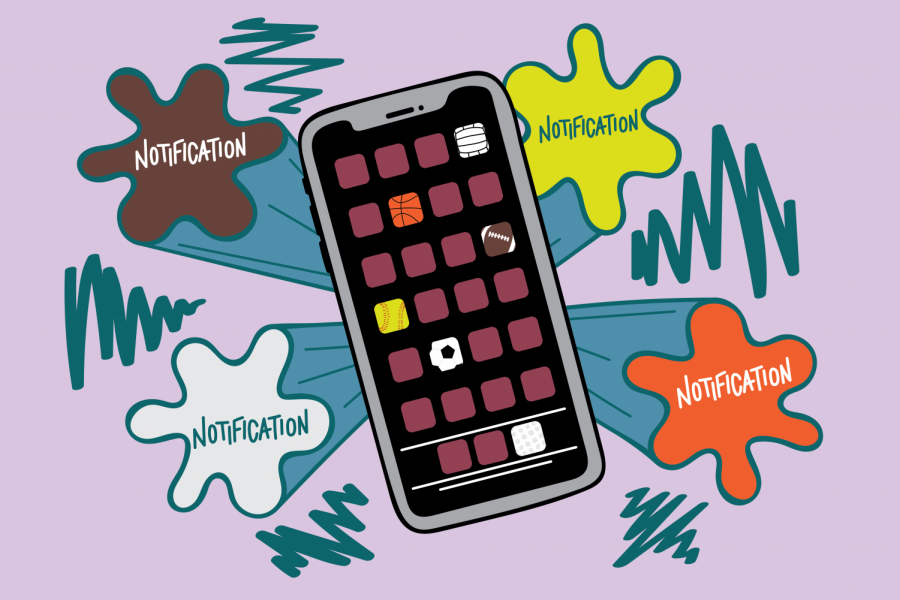University of Minnesota student-athletes are creating personal brands for themselves using their names and images in partnerships and deals with businesses from around the state and nation.
Prior to July 2020, the National Collegiate Athletic Association (NCAA) name, image, likeness (NIL) policy prevented student athletes from endorsing or promoting products and services. Since the rule change, several student athletes have taken advantage of partnerships with companies, as well as building their own brand.
The NIL policy now allows student athletes to “monetize” their names, images and likeness in sponsorship deals where they may be financially compensated, or in other independent activities. Senior associate Athletic Director Mike Wierzbicki said he believes the NCAA change was made to acknowledge how fast social media has evolved in recent years and the growth of student-athletes’ online following.
Although the state of Minnesota does not have laws restricting NIL deals, a University policy restricts students from using the University logo in their sponsorships.
“One thing that’s been a large education piece with our student athletes in these deals has been the use of University trademarks and logos,” Wierzbicki said. “That is something that we’ve had to educate our students on.”
While the University may not allow student athletes to use logos in their brand deals, they share professional photos taken at sporting events in hopes of it growing their social media presence and opening up NIL brand opportunities, Wierzbicki said.
The University also partnered with Team Altemus, an outside consulting firm that educates athletes on the legal language and long-term implications of contracts proposed to them.
“Two main areas that we focus on through our NIL program [is] to provide opportunities to grow their brand, and then also provide education and make sure that they’re aware of as much as possible in this space,” Wierzbicki said.
Although some athletes may utilize outside resources and agents to help with navigating NIL deals, other University athletes like basketball player Parker Fox choose to independently handle their branding.
“I’ve learned how to approach companies. I’ve learned how to create deals with companies. I’ve learned how to read contracts, that stuff that I really wouldn’t do if it wasn’t for this opportunity,” Fox said. “It’s real world stuff that’s been able to allow me to grow not only as an athlete in our school, but also as a person in business.”
Fox said due to the schedule and time commitment required of student athletes, it is difficult to have a job or earn money while attending school as student athletes are not paid as professional athletes.
Fox is currently juggling 20 different NIL deals with multiple companies including Restore Hyper Wellness, Water Wave TV and My Place Hotels. Some require weekly posts on social media in exchange for pay, while others are less consistent in exchange for free merchandise, Fox said.
“It works for you because you’re getting free stuff and you’re just posting Instagram stories. That’s not too hard,” Fox said.
Fox said some bigger deals will dictate the content and caption they want him to post online.
“They just send it to me and then they send me exactly what they want me to say,” Fox said. “Every week we’re doing a post and that’s where I’m written into a contract and it’s a lot more work but that’s where you see more of the money come from.”
This opportunity has also allowed athletes to build their brand in ways other than receiving endorsements. University hockey player Sammy Walker has used the new NIL policy to create his own hockey youth training camp.
“That was always something that I wanted to do, but I never could and then the rule passed and I was like I might as well try to do this,” Walker said.
Walker said he enjoys promoting his brand on his own terms without being in a contract, and the opportunity to give back to the community.
“For me, running these camps and just being myself and having the kids see the real me and not just someone you watch on TV,” Walker said. “I think it was a really cool way for the kids to meet Gopher hockey players and be able to get on ice with us.”
NIL deals have given the freedom for student athletes to reveal their creativity and authenticity beyond their athletic abilities, Wierzbicki said.
“We’re finally able to use who we are outside of our sport. To show that we’re more than just players, we’re more than just athletes, we have a different side to us and we can make money off that,” Fox said.













